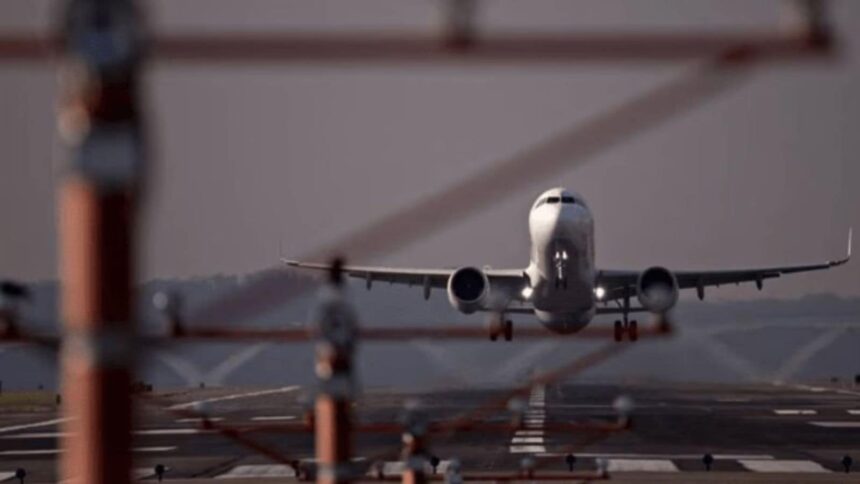The government is working with Indian airlines to get a better assessment of the impact of Pakistani airspace closure, and to work out the best possible solutions for both passengers and carriers, Civil Aviation Minister K Ram Mohan Naidu said on Monday.
According to Naidu, options on alternative routes will also be discussed in arriving at potential solutions, and the government’s priority is to try and see that the airspace closure does not adversely impact the average Indian passenger too much.
“The very next day (after Pakistan closed its airspace to Indian carriers), we sat with the airlines. We got all the initial feedback, but I told them to work out more thoroughly what the assessment is going to be if this continues for six months or one year, and how the difference is going to be in future between the Indian carriers and the foreign carriers. We need to have a thorough understanding on all of this before we decide,” the minister told reporters.
With Pakistan closing its airspace to Indian airlines from Thursday evening, over 800 international flights a week operated by Indian carriers are likely to be impacted by longer durations, increased fuel burn, and a few other complexities related to crew and flight scheduling, shows an analysis of airlines’ schedule data. All these flights were routinely overflying Pakistan on their way to various destinations to the west of India. The initial impact is already visible with Indian airlines’ flights from North India to West Asia, the Caucasus, Europe, the UK, and North America’s eastern region switching from their routine paths to longer routes.
Flight tracking data shows that some of Air India’s ultra-long-haul flights to and from North America are now taking technical halts—planned stops for refueling or crew change—at European airports, breaking the journey of the otherwise non-stop flights. The Indian carriers are working to adjust their schedules to factor in the ban from Pakistani airspace. IndiGo has already suspended its flights to Central Asian cities of Almaty and Tashkent as the closure of Pakistani airspace renders these destinations beyond the range of its aircraft. According to industry insiders, Indian airlines’ costs are bound to rise, which could translate into higher airfares for passengers. Additionally, airlines from other countries will get cost and time advantage over Indian airlines as the Pakistani airspace remains open for them.
“The Indian passenger is going to be affected, especially someone going to Europe or America, long-haul flights from the northern sector. So, we’ll have to assess how much impact it is going to create, then we’ll try to come up with some solutions. And for that, we are going to closely work with the airlines,” Naidu said.
All major Indian airlines operate international flights to destinations to the west of the country, and many of these flights were routinely overflying Pakistan. Air India operates flights to West Asia, Europe, the UK, and North America, while IndiGo operates flights to West Asia, Turkey, the Caucasus, and Central Asia. Air India Express, Akasa Air, and SpiceJet’s west-bound international flights are to destinations in West Asia.
On being asked if there is any alternative route that flights heading north and north-west of India could take without entering Pakistan’s airspace, the minister that that while there may be such a flight path going through China, but it poses its own challenges.
“Technically speaking, they can go up north and take a route from the eastern side (through Chinese territory)…But the challenge there is that it’s a high-altitude route. You have to go over the Himalayas and then enter that region. So again, the technical capability of the aircraft and the pilots and the crew, all that comes into the picture…Any decision that you take in aviation, you can’t ignore safety. So, that becomes the utmost priority, even if it takes little longer you have to find a safer route,” Naidu said.
In response to a question whether the government would be open to assisting Indian airlines financially for any loss they might incur due to the closure of Pakistani airspace, the minister said that he would not go as far as talking about any financial assistance to carriers at this stage.
When Pakistan closed its airspace for over four months in 2019 following the airstrikes by the Indian Air Force, Indian airlines are estimated to have lost around Rs 700 crore due to higher fuel expenses and operational complications that came with longer routes and additional stopovers some of their flights were forced to take. Air India was the worst affected Indian carrier at the time, as it operated more west-bound international flights than other airlines. Moreover, it was and continues to be the only Indian airline that operates long-haul and ultra-long-haul flights to Europe and North America.








